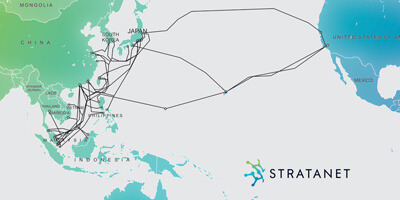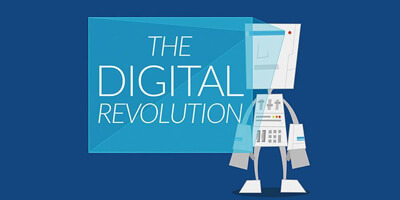5G is expected to complement 4G technologies to improve standard of living for consumers and society as a whole, and open new revenue opportunities for enterprises across a wide spectrum of industries. Early commercial deployments are expected in 2019, and widespread deployment will still take a number of years – 5G is designed to deliver incredible data speeds, provide large capacity, low latency and energy efficiency to support innovation and services across industries.
Features
Is 5G the competitive edge?
As technology suppliers develop the next-generation of wireless technologies, mobile operators invest in the networks of the future, and governments launch innovation programs, the early benefits of 5G will go to economies where globally aligned 5G spectrum and technology innovation is readily available.
StrataNet owned network covers Asia to USA
For content providers and mobile operators alike, the growth of data consumption has grown at a torrid pace. Northern Asia has among the highest data use globally with the developing SE Asian nations catching up each year. In general, the demand for capacity is being driven by the introduction of new data services along with an insatiable appetite for video and content heavy applications with all of these being lapped up by consumers and enterprises across Asia, SE Asia’s rapidly growing middle class.
Chinese investment driving economic growth and industrialization in Africa
Chinese investment is reshaping Africa and driving economic growth in the region, with many academics now predicting a future of mass industrialization on the continent. China has been investing in Africa for the best part of a decade now, which has largely remained invisible to the naked eye. However, China is playing an increasingly transformative role in Africa, and strong diplomatic relationships have now been formed between China and Africa due to its continuous investment in the region.
How algorithms are controlling our lives
The word “algorithm” has become very recurrent and polemic lately in the world of digital technologies and trends. It symbolizes the dangers and consequences of an automated world conditioned by commercial logic. Before judging negatively or positively its impact and role in Google’s searching process, Facebook’s news feeds and recommendations on Amazon, it is important to define an algorithm first.
Ghana: Setting the standards for African countries
Known as one of the first countries in Africa to undergo liberalization processes and deregulate its telecommunications sector, Ghana has proven to be a leader in the African continent. Following the privatization of Ghana Telecom in 1996, there was very rapid growth in market competition across the mobile, internet and fixed-line sectors, with a number of new players being licensed to offer services.
Is blockchain here to stay?
Blockchain is set to revolutionize all industries, from finance, banking and insurance to healthcare, media and logistics in a way that will change all processes and create new models that will have a greater impact on consumers and markets.
Are you ready to pay more for 5G?
5G won't come cheap. In the United States alone, fiber infrastructure to prepare for the next generation technology could cost up to $150 billion, according to Deloitte. But despite 5G's hefty bill, a recent survey discovered that 75 percent of end user organizations would be willing to pay more for 5G mobile capabilities.
Is digital transformation happening in Africa?
Africa is no longer this abandoned continent. Even though it has long been considered as under-developed it has started to emerge, notably in terms of telecommunications. Whether from the point of view of mobile subscriptions that account for around one billion, 3G and 4G deployment, or even the influx of low cost smartphone, the telecoms market scene in Africa is positively changing. In spite of infrastructure challenges, the continent was finally able to guarantee for his residents access to the latest mobile innovations, notably mobile money services in which the continent is leader.
How can telcos navigate the digital revolution?
Telecom providers face tough times as digitization disrupts traditional business models. In fact, the telecom industry is ranked second after media as most likely to experience major digital disruption, according to a 2015 survey of C-level executives from 15 industries. EITC, the parent company of du, has responded to the disruption of digitization by embracing it, launching a fully digital mobile service.















